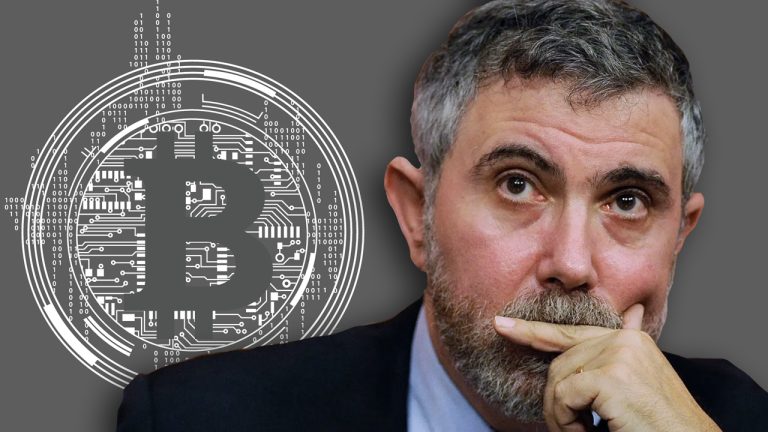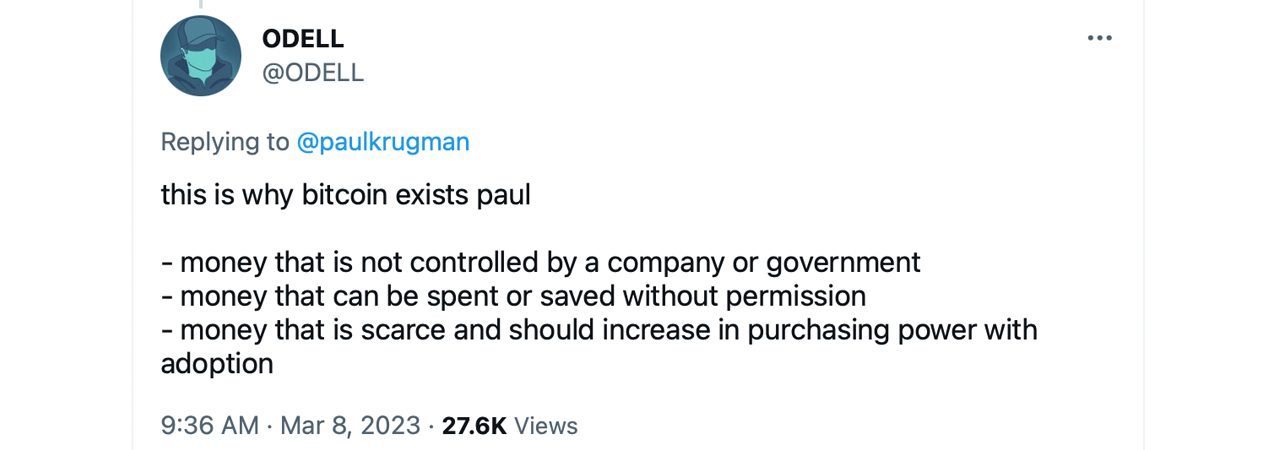
Nobel Prize winner Paul Krugman complained on Twitter Wednesday that he was experiencing issues with the centralized payment processor Venmo. His tweet was followed by a barrage of bitcoin supporters who insisted that Krugman was now realizing the importance of censorship-resistant payment systems.
Krugman’s Experience Highlights the Growing Interest in Censorship-Resistant Payment Systems
Nobel Prize winner and author Paul Krugman, who famously wrote in 1998 that “by 2005 or so, it will become clear that the Internet’s impact on the economy has been no greater than the fax machine’s,” had issues with a third-party payment provider. On Wednesday, Krugman announced on Twitter that he was busy but needed to explain the situation.
“Too busy to tweet. But not to vent,” Krugman said. “I’ve been using Venmo for years, but now it won’t allow me to make payments. I spent a long time in chat with representatives, and they told me that they can’t explain why — or fix it. The software has taken control.”
Paul Krugman follows the school of Keynesian economics and has been a long-time skeptic of bitcoin. He was quickly criticized by several bitcoin proponents, including Microstrategy’s Michael Saylor, who insisted that “Bitcoin fixes this.”

One Twitter user even quoted Krugman, asking “Exactly what is [bitcoin] supposed to be doing that we don’t already mostly do?” In the past, the economist has compared the cryptocurrency market to the subprime mortgage crash and is well-known for his skepticism toward bitcoin.

Krugman expressed his frustration with Venmo on Twitter, and the thread quickly became filled with commentary about bitcoin. Despite numerous statements, the economist did not respond to the crypto fans. One individual quoted from the bitcoin white paper, saying “Try a purely peer-to-peer version of electronic cash that would allow online payments to be sent directly from one party to another without going through a financial institution.”
Shortly after Krugman’s first tweet, the economist explained that his tweet helped resolve his issue with Venmo. “And tweeting got results. A representative called and we seem to be up again,” Krugman told his 4.5 million social media followers. Krugman’s experience with Venmo is not unique, as billionaire Mark Mobius recently detailed his own difficulties in getting funds out of HSBC China. Mobius’s issues were also criticized by bitcoin enthusiasts, who pointed out that he should understand the importance of censorship-resistant money like bitcoin.
What are your thoughts on Paul Krugman’s Venmo issues and the criticism he received from bitcoin supporters over his views on cryptocurrency? Share your thoughts on this subject in the comments section below.
#News, #Billionaire, #Bitcoin, #CensorshipResistant, #Centralized, #ChatSupport, #Cryptocurrency, #Decentralized, #DigitalAssets, #DigitalCurrency, #EconomicImpact, #ElectronicCash, #FinancialInstitution, #FinancialTechnology, #HSBCChina, #KeynesianEconomics, #MarkMobius, #MichaelSaylor, #Microstrategy, #MonetaryPolicy, #NobelPrizeWinner, #OnlinePayments, #PaulKrugman, #PaymentProcessors, #PaymentSystems, #Peertopeer, #SocialMedia, #Software, #SubprimeMortgageCrash, #ThirdParty, #Twitter, #Venmo